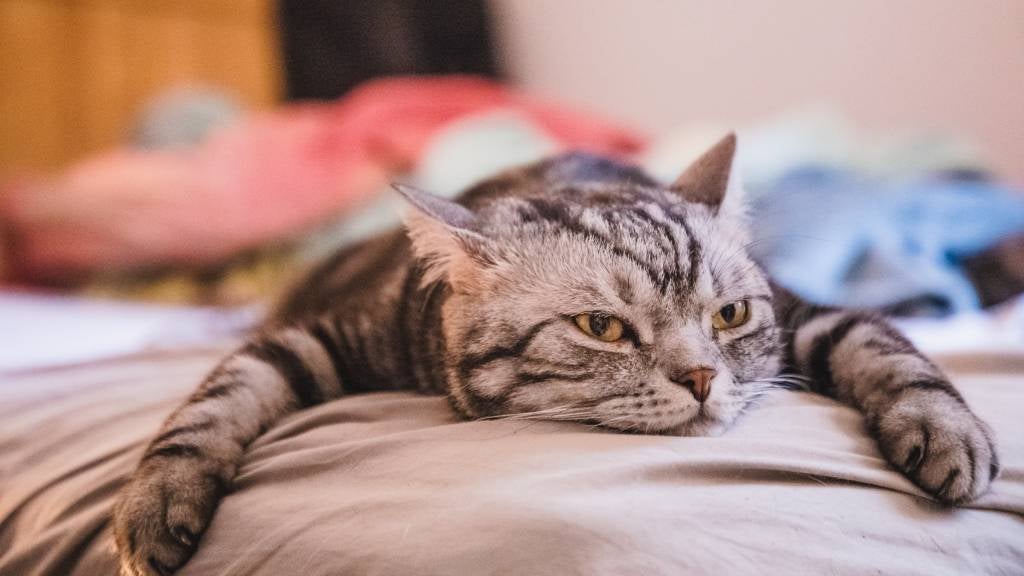Quick take
- Cats are more social than many people think and can feel lonely when left alone
- Signs include over-grooming, loss of appetite, destructive behaviour and extra meowing
- Enrichment, play and consistent routines help prevent boredom and stress
- Tech-like pet cameras or soothing music can ease time alone
- If loneliness persists, seek veterinary advice to rule out health or behavioural issues
Understanding feline social needs
Cats may be known for independence, but plenty feel lonely or bored when left alone for long periods. Their wellbeing depends on interaction, play and a stimulating environment. Without these, some cats may develop stress-related behaviours.
Why cats can feel lonely
- Lack of interaction or play
- Minimal environmental stimulation
- Sudden changes in their routine or household
- Absence of other pets or familiar companions
Signs your cat may be lonely
- Excessive vocalisation when you’re away
- Pacing or restlessness around the home
- Over-grooming or hair loss
- Destructive behaviour such as scratching furniture
- Lethargy or changes in appetite
Solutions to keep your cat happy when alone
1. Environmental enrichment
- Interactive toys and puzzle feeders to keep their mind busy
- Scratching posts and climbing structures
- Window perches to watch outdoor activity
2. Scheduled playtime
- Dedicate morning and evening play sessions
- Use toys like feather wands or treat balls
- Regular play helps reduce stress and burn energy
3. Companionship
- Some cats benefit from another pet in the home
- Introduce slowly to ensure compatibility and reduce stress
4. Use technology
- Pet cameras with treat dispensers for light interaction when you’re away
- Soothing music or cat-friendly videos can help some cats relax
5. Maintain routine
- Keep feeding and play times consistent
- Make familiar bedding and toys easy to access
- Avoid sudden environmental changes where possible
When to seek veterinary advice
If your cat’s behaviour changes dramatically or stress signs persist despite enrichment, speak with your vet. Possible causes include underlying health issues, significant anxiety or behaviour disorders that need tailored support.
Final thoughts
Cats can experience loneliness, but with engagement – including regular grooming – as well as environmental enrichment and steady routines, you can help your cat thrive even when you’re not home. Small daily adjustments can also make a big difference to comfort and confidence.
Keep your curious cat content with Buddy
Life happens – from routine check-ups to unexpected curveballs. Buddy Pet Insurance can help you feel supported, so you can focus on play, enrichment and keeping your feline friend purring along. Get a quote today and find the level of cover that’s ideal for you and your feline friend.
FAQsFrequently Asked Questions about cat loneliness
No matter how much you try to avoid leaving your fluffball on their own, midday meetings or long shifts are a part of life – time alone is inevitable on occasion. Here are answers to the most common questions cat lovers ask to understand their meowing mate better.
Do cats get lonely when left alone all day?
Many cats become stressed or bored without stimulation, especially if left alone regularly.
What are the signs my cat is lonely?
Look for extra meowing, restlessness, over-grooming, destructive scratching or changes in appetite and energy to determine if your cat is lonely.
How can I keep my cat entertained while I’m away?
Provide toys, climbing spots, scratching posts and window views to keep your pet busy and boredom-free. Rotate activities and leave puzzle feeders to keep them active and occupied.
Will getting another cat fix loneliness?
Getting your cat another feline friend can sometimes fix loneliness – but not always. Personality matters. If you try a companion, introduce slowly and monitor stress on both cats.
7 Nov 2025

